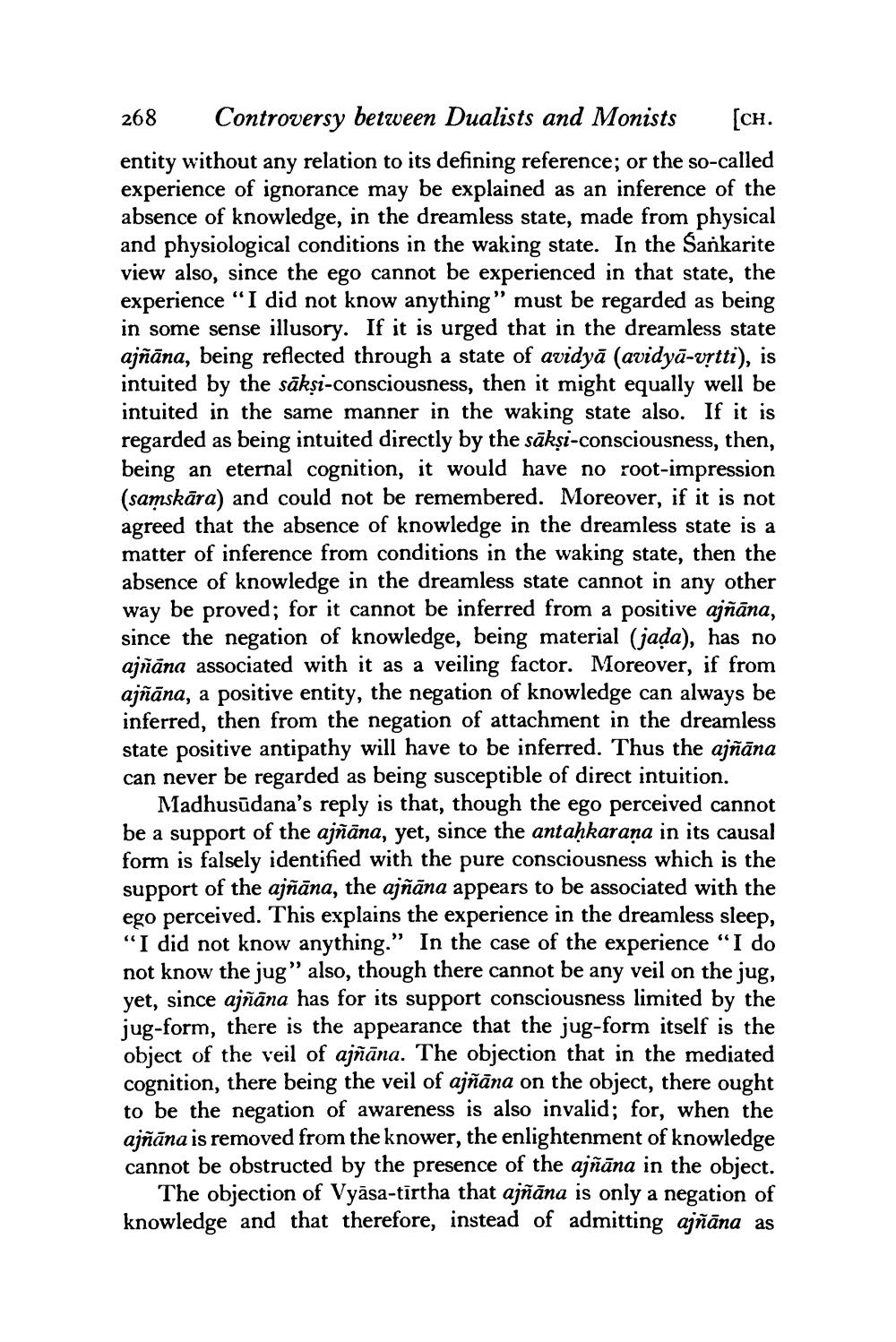________________
268 Controversy between Dualists and Monists [CH. entity without any relation to its defining reference; or the so-called experience of ignorance may be explained as an inference of the absence of knowledge, in the dreamless state, made from physical and physiological conditions in the waking state. In the Sankarite view also, since the ego cannot be experienced in that state, the experience "I did not know anything" must be regarded as being in some sense illusory. If it is urged that in the dreamless state ajñāna, being reflected through a state of avidyā (avidyā-vrtti), is intuited by the sāksi-consciousness, then it might equally well be intuited in the same manner in the waking state also. If it is regarded as being intuited directly by the sākṣi-consciousness, then, being an eternal cognition, it would have no root-impression (samskāra) and could not be remembered. Moreover, if it is not agreed that the absence of knowledge in the dreamless state is a matter of inference from conditions in the waking state, then the absence of knowledge in the dreamless state cannot in any other way be proved; for it cannot be inferred from a positive ajñāna, since the negation of knowledge, being material (jada), has no ajñāna associated with it as a veiling factor. Moreover, if from ajñāna, a positive entity, the negation of knowledge can always be inferred, then from the negation of attachment in the dreamless state positive antipathy will have to be inferred. Thus the ajñāna can never be regarded as being susceptible of direct intuition.
Madhusūdana's reply is that, though the ego perceived cannot be a support of the ajñāna, yet, since the antaḥkarana in its causal form is falsely identified with the pure consciousness which is the support of the ajñāna, the ajñāna appears to be associated with the ego perceived. This explains the experience in the dreamless sleep, “I did not know anything." In the case of the experience "I do not know the jug” also, though there cannot be any veil on the jug, yet, since ajñāna has for its support consciousness limited by the jug-form, there is the appearance that the jug-form itself is the object of the veil of ajñāna. The objection that in the mediated cognition, there being the veil of ajñāna on the object, there ought to be the negation of awareness is also invalid; for, when the ajñāna is removed from the knower, the enlightenment of knowledge cannot be obstructed by the presence of the ajñāna in the object.
The objection of Vyāsa-tirtha that ajñāna is only a negation of knowledge and that therefore, instead of admitting ajñāna as




